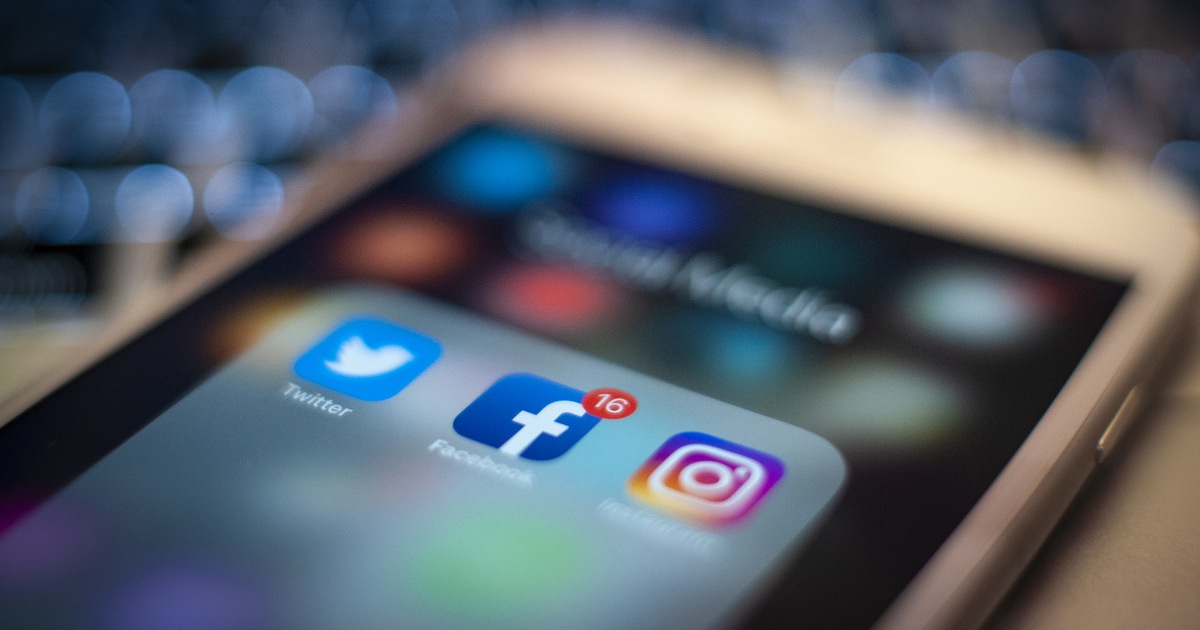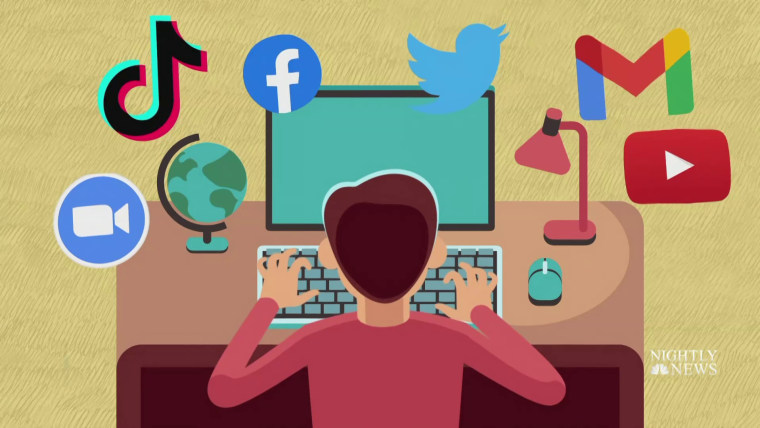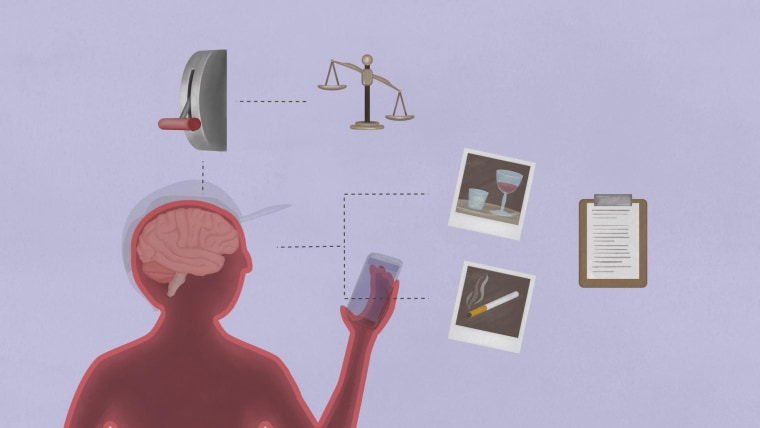
Social media use linked to depression in adults
Eleanore Beatty November 26, 2021 ArticleWhile social media has been widely linked to anxiety and depression in teenagers, new evidence suggests that platforms such as TikTok and Instagram can leave middle-aged adults feeling sad, too.
The research, published Tuesday in the medical journal JAMA Network Open, is based on a series of surveys of 5,395 adults whose average age was 56.
The surveys, conducted from May 2020 through May this year, began as a way for researchers to learn more about how adults were coping throughout the Covid-19 pandemic.
Over time, researchers increasingly became interested in whether social media use might be linked to changes in mental health.

“We were asking people who weren’t depressed about their social media use,” said Dr. Roy Perlis, one of the study’s authors. “Then we came back later to see if the people who were using certain kinds of social media were more likely to be depressed.”
Compared to adults who did not use social media, “people who were using Facebook, people who were using TikTok, and people who were using Snapchat were substantially more likely to come back and tell us they felt depressed the next time they filled out the survey,” said Perlis, a professor of psychiatry at Harvard Medical School and Massachusetts General Hospital.
The research does not prove social media causes depression. Indeed, it is possible that people already prone to feeling sad were more likely to log on to such sites.
But it adds to evidence of a growing mental health crisis in the United States. Nearly one-third of American adults reported feeling depressed in an October study, up from 8.5 percent before the pandemic.
Survey respondents who had minimal symptoms of depression early on were more likely to report an increase in symptoms in later surveys if they used social media.
The research is limited in that it cannot tease out what kinds of content people were exposed to or sought out online. And previous research has shown an overall increase in social media use over the past year.
Outside experts theorize that seeing others enjoying life or otherwise seemingly living their best lives on social media may remind people of what they’ve been missing this past year.
Remember that social media tends to act as a kind of “sizzle reel” for people, advised Mitch Prinstein, chief science officer for the American Psychological Association.
“Our brains were not built for this kind of social interaction. And social media is kind of hijacking the need for social interaction with something very artificial and insufficient,” he said. “Social media is the empty calories of social interaction.”

Rachel Wu, an associate professor of psychology at the University of California, Riverside, agreed. Social media may be “filling a void, but it’s not doing a very good job,” she said.
Neither Wu nor Prinstein were involved in the new research.
Perlis said his team found the association between social media use and increased symptoms of depression even after accounting for factors such as isolation during the pandemic.
The research also found age differences in how certain platforms impacted mental health. Depressive symptoms were more commonly reported among Facebook users under age 35 than older adults.
The opposite was true for users of Snapchat and TikTok: more depressive symptoms were reported among people over age 35.
The reasons for such findings were unclear. It could be that because Snapchat and TikTok are more visual mediums, perhaps affecting older adults differently.
Or it could suggest that a person is out of sync with his or her peers. Perlis said more research is needed to interpret the results appropriately.
Ultimately, experts recommend remaining mindful of time spent on social media.
“The programs are designed to keep you on as long as possible,” Prinstein said. “Try to be aware of how much time you’re spending on them.”
Erika Edwards is a health and medical news writer and reporter for NBC News and “TODAY.”
You may also like
Archives
- December 2024
- November 2024
- September 2024
- August 2024
- July 2024
- February 2024
- January 2024
- December 2023
- November 2023
- October 2023
- September 2023
- August 2023
- July 2023
- June 2023
- May 2023
- April 2023
- March 2023
- February 2023
- January 2023
- December 2022
- November 2022
- October 2022
- September 2022
- August 2022
- July 2022
- June 2022
- May 2022
- April 2022
- March 2022
- February 2022
- January 2022
- December 2021
- November 2021
- October 2021
Calendar
| M | T | W | T | F | S | S |
|---|---|---|---|---|---|---|
| 1 | 2 | 3 | 4 | 5 | 6 | |
| 7 | 8 | 9 | 10 | 11 | 12 | 13 |
| 14 | 15 | 16 | 17 | 18 | 19 | 20 |
| 21 | 22 | 23 | 24 | 25 | 26 | 27 |
| 28 | 29 | 30 | 31 | |||
